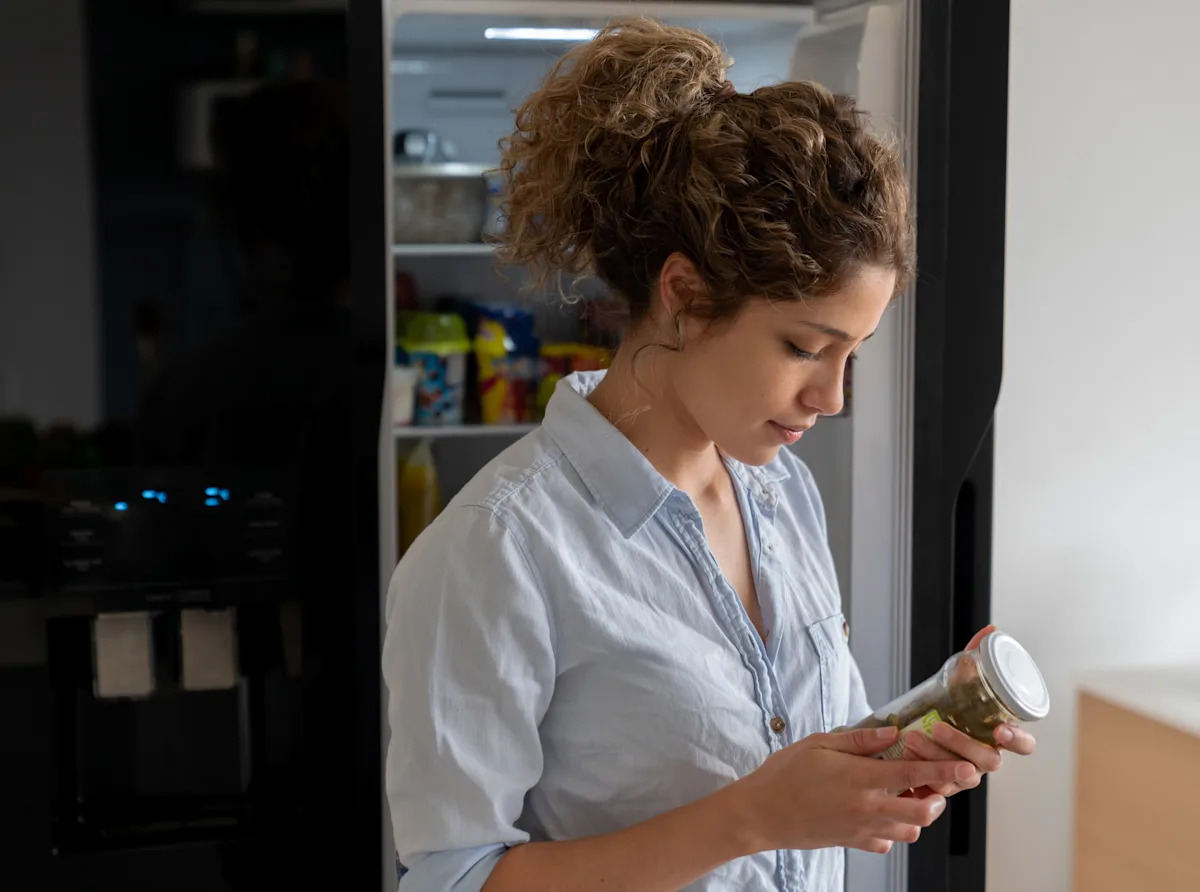Holidays, day trips and impromptu barbecues can all mean we eat fewer meals at home than usual during the summer.
While this is great for our social life, it could mean more food going out of date in the fridge. But before you do a big clear out, it’s important to know what the dates on popular supermarket items really mean, and when food is still safe to eat.
“We throw away 4.4 million tons of edible food each year in the UK, which would fill Wembley Stadium eight times over,” Jo Linley, food specialist at the Waste and Resources Action Programme (WRAP) tells Yahoo UK. “Every day we’re wasting 2.7 million potatoes, 1.2 million loaves of bread and 2.3 million glasses of milk.”
Not only is this bad for our wallets, costing the average four-person household £1,000 each year, it also has a detrimental effect on the environment, generating harmful greenhouse gas emissions.
Keeping food for longer could help reduce the amount we waste and put more money in our pockets, but how do you know what’s OK to eat and which foods aren’t worth risking? We asked WRAP and specialist dietitian Nichola Ludlam-Raine to find out.
Can you eat food past its expiry date?
Most packaged food in the UK, with the exception of fresh, uncut fruit and vegetables, will have either a use-by or best-before date. And while both Linley and Ludlam-Raine say you should “never eat a food beyond the use-by date,” for safety reasons, best-before dates are slightly different.
“Use-by dates are about safety while best before refers to quality,” Linley explains. “Where there is a best-before date on food, generally you’re fine to eat it beyond that time as long as you use your senses, including sniffing it and looking for mould or signs of spoilage.”
Does food retain its nutritional value?
While there might be a loss of flavour, texture or appearance, Ludlam-Raine says: “In most cases, foods retain their nutritional value well past the best-before date if stored properly.”
However, she notes there are some exceptions.
“Some vitamins, especially vitamin C in fruit and certain B vitamins in fortified cereals, can degrade over time. However, protein, fibre, and minerals remain stable,” she explains.
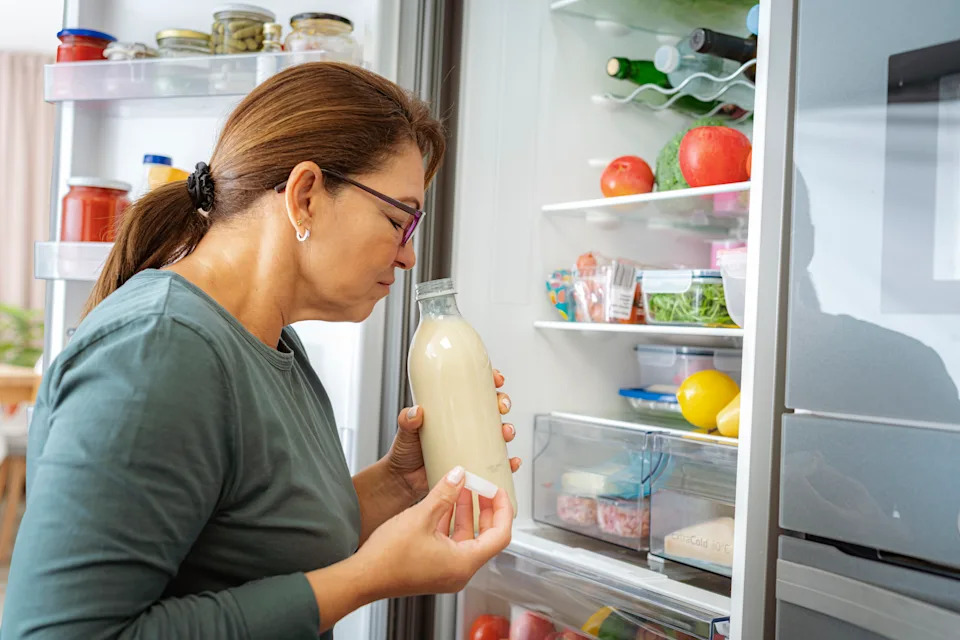
According to WRAP, 2.3 million glasses of milk are wasted in the UK each day. (Getty Images)
7 foods you can eat past their best-before date
These are just some of the common foods you can eat past their best-before date, provided they’re stored correctly according to the instructions on the packaging.
🥛 Milk
“Milk is typically fine beyond its best-before date,” says Linley. “You’ll know when it’s off because it will go gloopy, sour and look lumpy before it’s dangerous to drink.”
The Food Standards Agency recommends using the sniff test to see if milk has soured, or asking someone else to do it for you if you have issues with smell.
Watch out for use-by dates, though. Many supermarkets have scrapped them on milk to reduce wastage, but if your carton does have one, the FSA says it shouldn’t be consumed beyond this date, even if it smells fine.
How to use up milk: Add to smoothies, scrambled eggs and sauces or use it as an excuse to make some homemade custard. You could also freeze it in ice lolly moulds to create a cooling treat for young children.
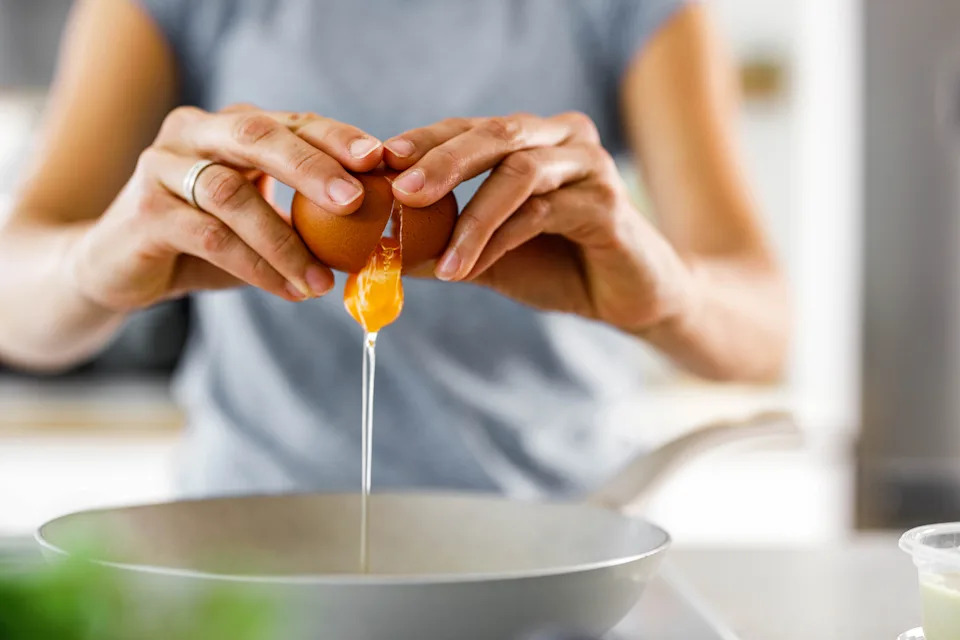
Eggs can be used two days past their best-before date. (Getty Images)
🥚 Eggs
“Eggs are usually OK for two days past their best-before date, but make sure they’re cooked thoroughly [both the yolk and the white]” says Linley. You’ll typically find the best-before date stamped on the egg box or an egg’s shell.
One or two days past the best-before is also a much more reliable gauge of whether an egg is OK to eat than the ‘float test’ – fresher eggs sink in water; older eggs float.
“The float test can’t show you which bacteria have been growing inside the egg,” the FSA states. “The egg floats because more air gets inside the older it gets, so it’s an indicator of age, not safety.
How to use up eggs: Make meringues, carbonara, bake a cake or cook a frittata, which can be kept in the fridge for a couple of days.
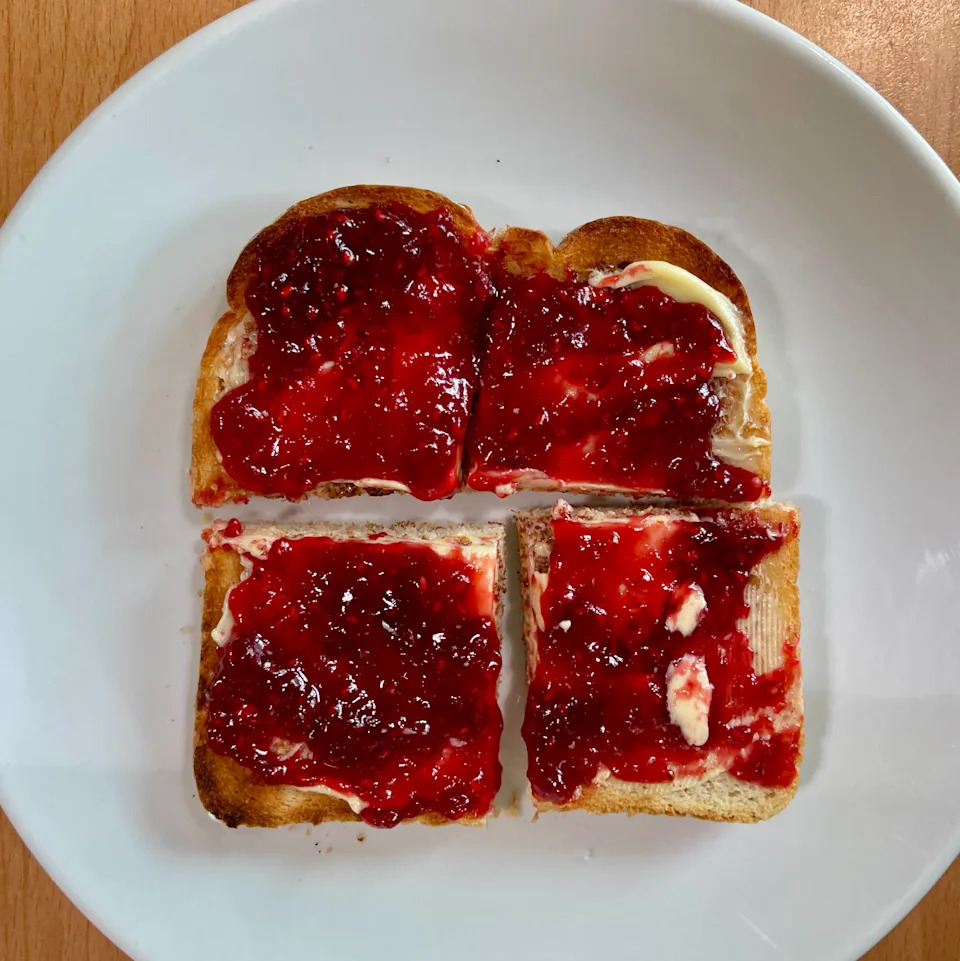
Jam’s high sugar content acts as a preservative. (Getty Images)
🍓 Jam
The high-sugar content in jam acts as a preservative, meaning unopened jam can last for years, according to Ludlam-Raine. Once opened, though, she says you should store it in the fridge and use it within six to 12 months, unless there is a timeframe on the label.
If you see mould or your jam smells off or tastes fermented, though, don’t eat it, it’s time for the bin.
How to use up jam: Swirl into overnight oats, dollop on pancakes, or mix into salad dressings.
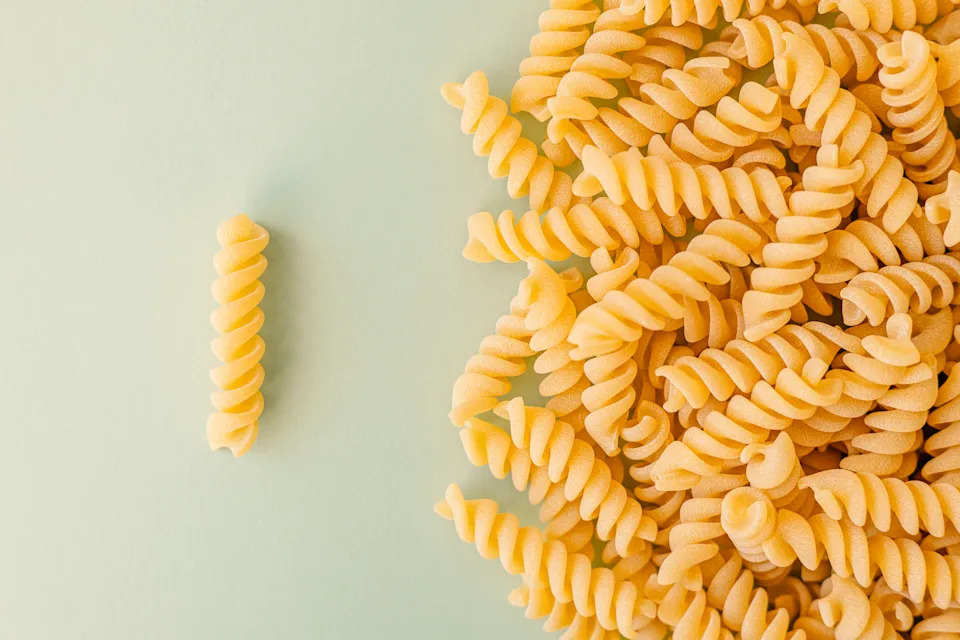
Dried pasta can be used years past its best-before date, according to Linley. (Getty Images)
🍝 Pasta
According to Linley, many store cupboard ingredients such as biscuits, crisps and canned foods can be fine to eat even months after the best-before date. And that includes pasta. “If it’s stored correctly, pasta can be used for around three years past its best before date,” she says.
Dried pasta should be stored in an airtight container. Fresh pasta, however, should be refrigerated and used by its use-by date.
How to use up pasta: If you’re bored of savoury pasta dishes, try this pudding from Love Food Hate Waste. Place cooked pasta in a greased oven dish, beat two eggs well, add double cream and strawberry jam, pour evenly onto the pasta and bake at 180 degrees for 40 minutes. Cooked pasta can also be frozen.
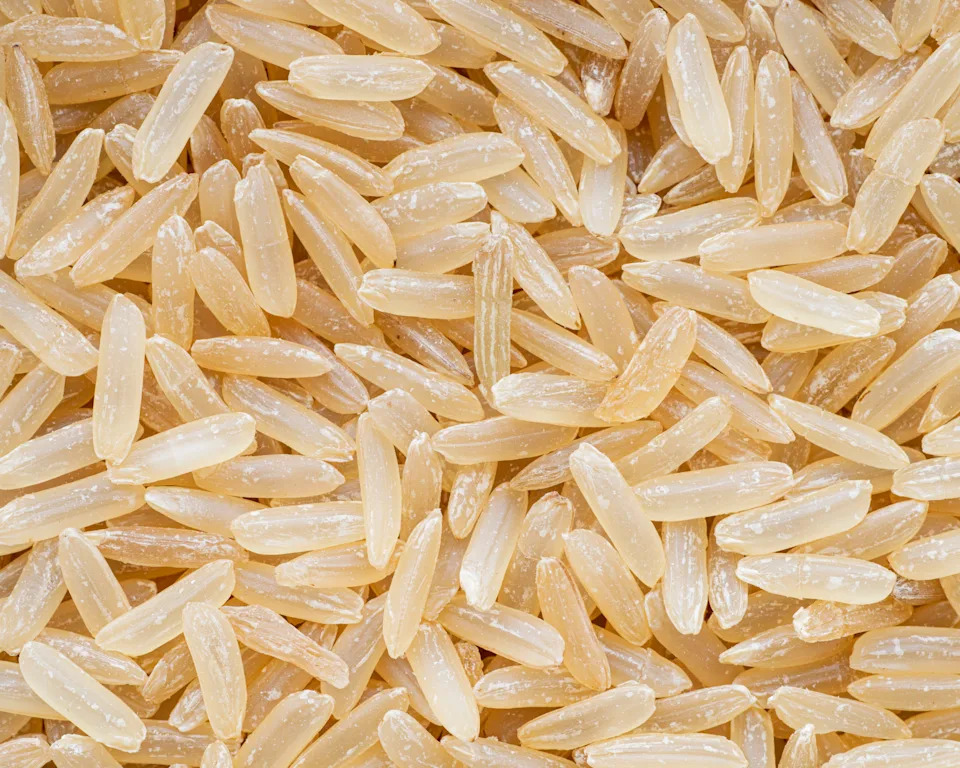
Brown rice may spoil more quickly than white rice. (Getty Images)
🍚 Rice
Another store cupboard favourite, Ludlam-Raine says white rice can be eaten long after its best-before date, providing it’s stored in a dry and airtight container. However, she warns that brown rice may spoil more quickly.
“Brown rice contains more natural oils, so it can turn rancid after six to 12 months,” she says. Her top tip is to store uncooked brown rice in the fridge or freezer for a longer shelf life.
How to use up rice: Ludlham-Raine recommends making fried rice or rice salad – once cooked, rice should be cooled down quickly, stored in the fridge and eaten within 24 hours.
Cooked rice can also be frozen if cooled quickly by placing the container in cold water, covering it and freezing within an hour of cooking. Defrost in the fridge and cook until piping hot.
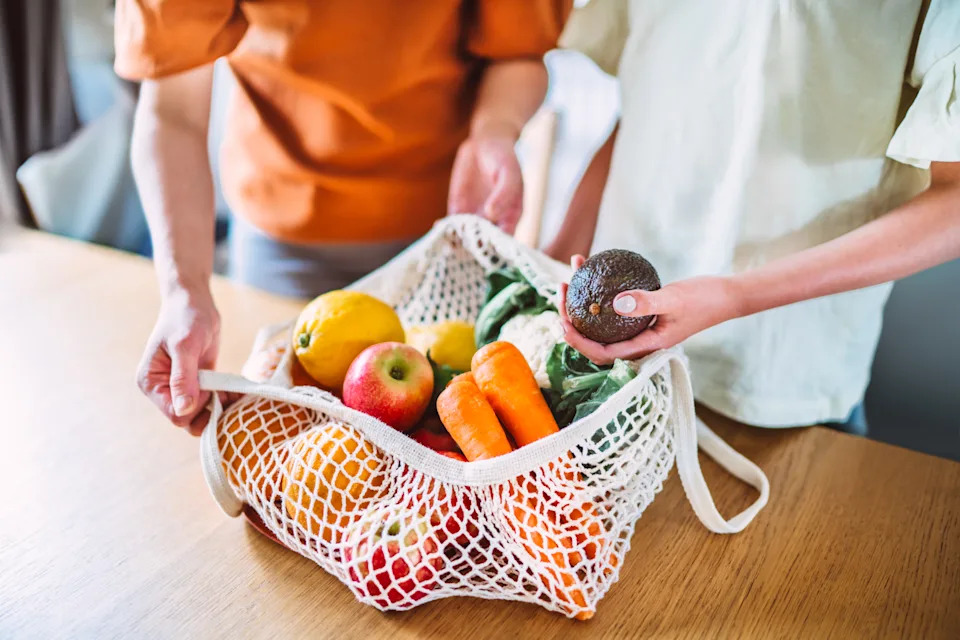
Fresh, uncut fruit and veg tends not to have a best-before date. (Getty Images)
🥕 Fruit and veg
“There shouldn’t be any use-by or best-before dates on fresh uncut fruit and veg,” says Linley. Although she notes some soft fruits, like raspberries, may have them as they have a shorter shelf-life. Instead, you should use your judgment on whether or not to eat
Ludlam-Raine adds that root veg may sprout or go soft, but are usually fine to eat if they’re peeled and cooked. Limp greens can be revived in cold water or cooked in soups and stir-fries.
However, she warns against eating fruit and veg that has gone mouldy, slimy or has an unpleasant smell. “They should be discarded, as mould can penetrate beyond what’s visible and some moulds produce harmful toxins,” she says.
How to use up fruit and veg: Blitz overripe fruit into smoothies or bake into muffins; roast tired vegetables or make into soup.
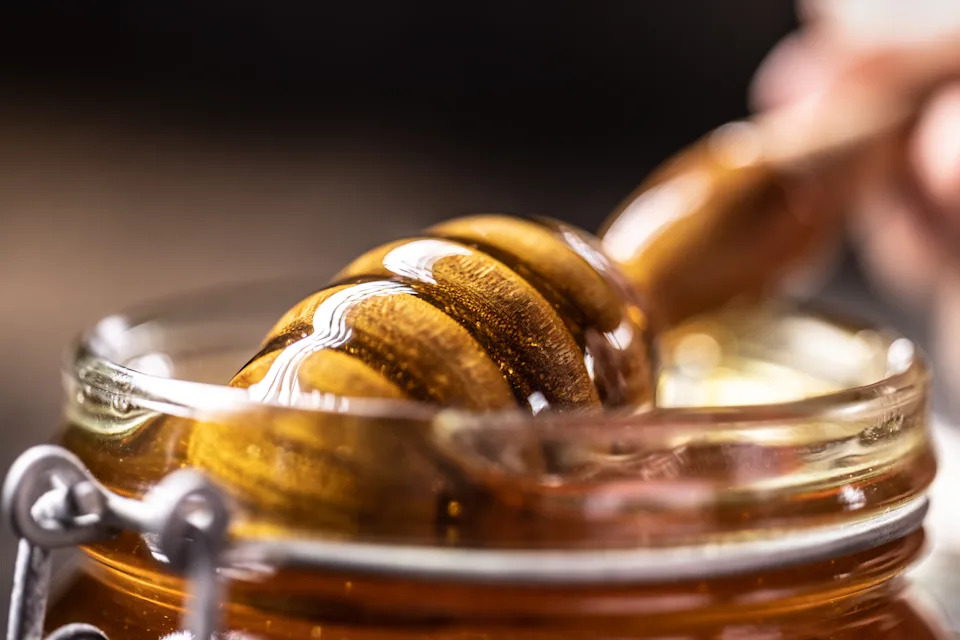
If your honey forms crystals, it doesn’t mean it’s gone off. (Getty Images)
🍯 Honey
“Honey has a very low water content and high sugar content, which inhibits bacterial growth, so it can last indefinitely if stored in a sealed container,” says Ludlam-Raine. She also says it’s safe to eat if crystallised.
“Crystallisation is natural and doesn’t mean it’s gone off. Gently warming the jar in hot water will dissolve the crystals,” she explains
How to use up honey: Stir into yoghurt, porridge or tea – crystallised honey works just the same, says Ludlam-Raine.
When you shouldn’t risk it
Here’s when the experts say you should be wary of eating food past the best-before date. Remember, use-by dates should always be followed.
-
Eggs more than two days after their best-before date.
-
High-oil foods like nuts, seeds, and wholegrain flours, if they’re rancid. Ludlam-Raine says the smell and taste will give this away.
-
Soft fruits, vegetables or other foods that have gone mouldy or slimy.
What to do with food approaching its expiry date
-
Freeze it following packaging instructions – this acts as a ‘pause button’, meaning food won’t deteriorate or spoil.
-
Cook it – food can be cooked up to midnight on its use-by date, cooled and frozen or kept in the fridge to be eaten within 48 hours.
-
Check out Love Food Hate Waste, you can search for specific foods and you’ll get information about whether or not they can be frozen, tips for using them up and recipes.
Read more about nutrition:
